Anxiety & Stress
Breathing and Grounding Exercises
This resource offers two strategies to calm, ground, and refocus oneself in times of need.
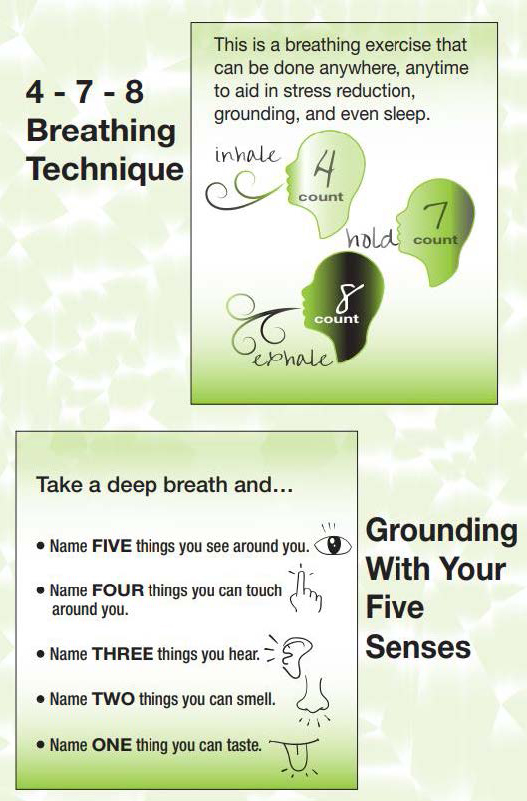
Wellness Education Lab
Explore short and engaging trainings designed for students 13 years or older about “Rethinking Anxiety” and “Mental Health Foundations.” Training is also available to parents/guardians and educators/school staff.
Is it Stress or Anxiety?
An infographic from the National Institute of Health compares and contrasts anxiety and stress and provides resources to help whenever a person is experiencing either.
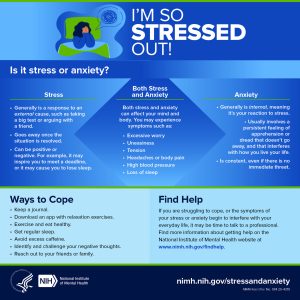
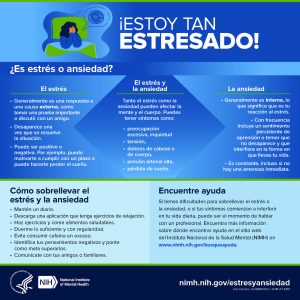
How to Deal with Anxiety
This website provides connections to volunteer Crisis Counselors 24/7. It provides options to text, chat online, or message on WhatsApp. The resource page at this link also provides information about anxiety and resources for treating anxiety.
Dear Stress, I'm over you.
Dear Stress is a new resource to help young people manage stress with three easy strategies.
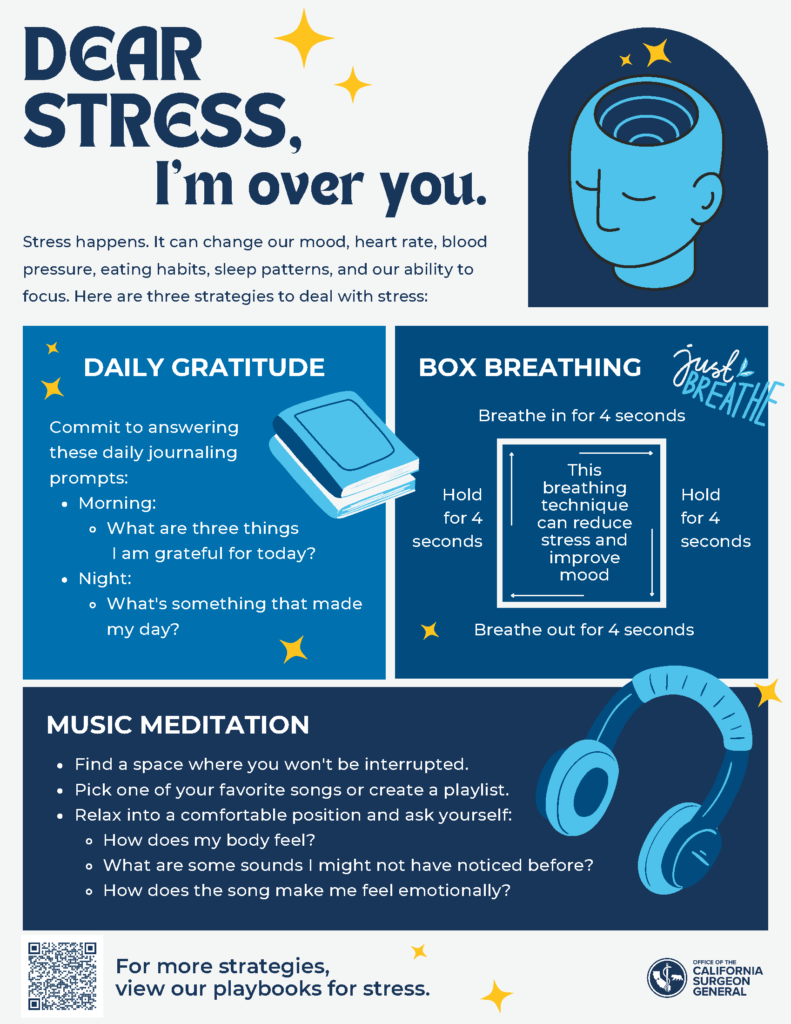
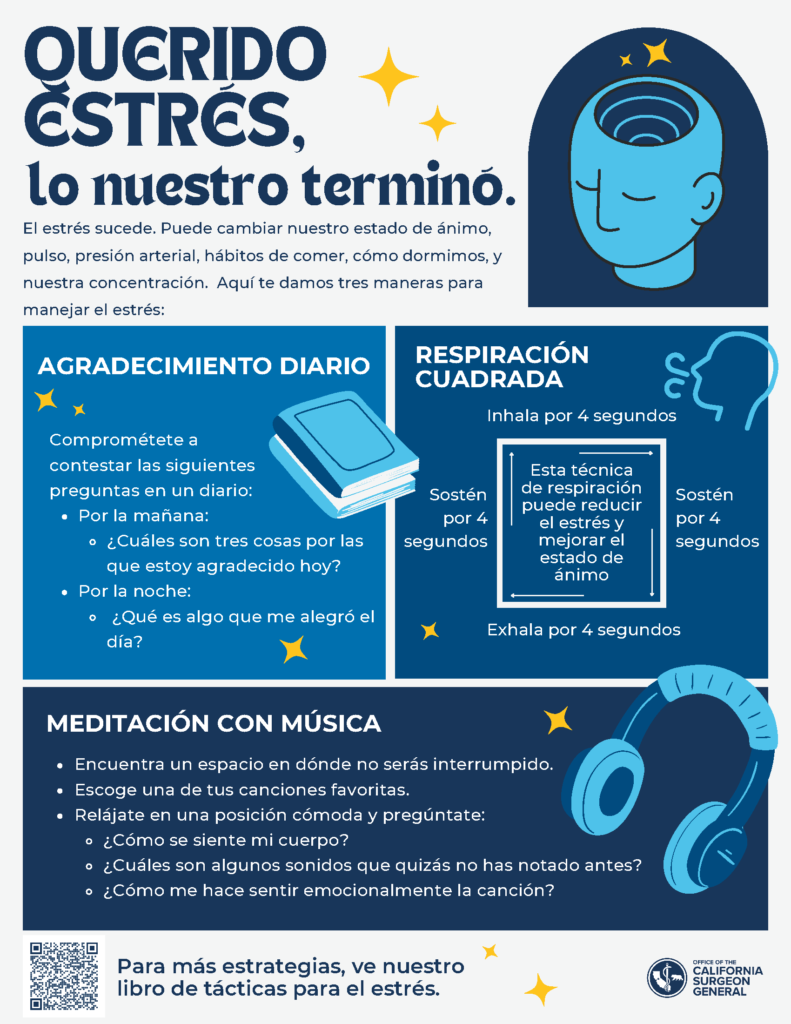
Tips to Improve Sleep
Try one or two of the tips below and see how they may help you:
- Exercise daily: Even a ten-minute walk daily in the sunlight has been shown to have
positive effects on sleep and reducing tension in the body often associated with anxiety
and stress. - Decrease lights and cut off electronics: One to two hours before bed, start reducing the
lights in your home, and get off electronics when possible. This includes your cell phone,
computers, tablets, and video games. - Use blue light blockers: If using electronics before bed, it is best to use blue light blockers
or apps to reduce stimulation to the brain that later will negatively affect your sleep. - Drink a warm beverage: Try a hot beverage before bed, such as a non-caffeinated herbal
tea, milk, lemon water. - Stretch before bed. For any long slow stretches, listen to your body, don't over-stretch or
hurt yourself. - Read a book.
- Listen to a calm story or music.
- Take a warm shower.
- Do not drink caffeinated beverages after 2:00 pm.
San Diego County Office of Education Virtual Wellness Center
This virtual center offers myriad resources for students of all ages as well as parents/caregivers and is divided into different categories, including Coloring and Creativity, Journaling, and Virtual Tours and Webcams. Some resources offer information, some offer opportunities to calm and refocus a person in a time of need.

